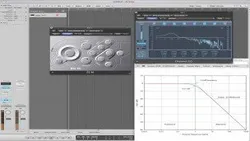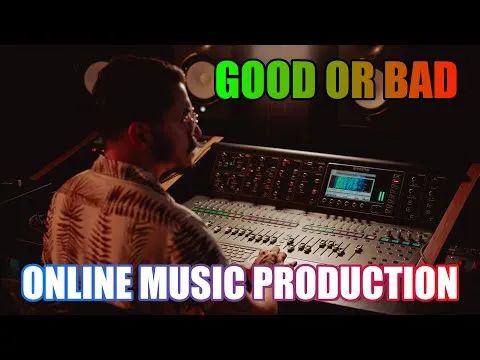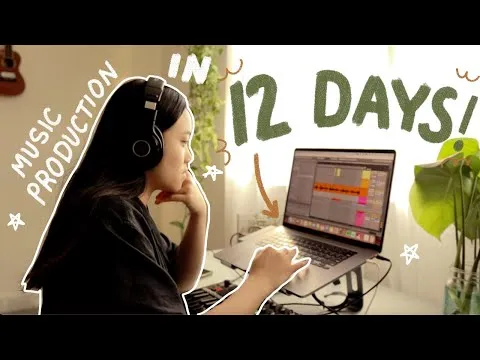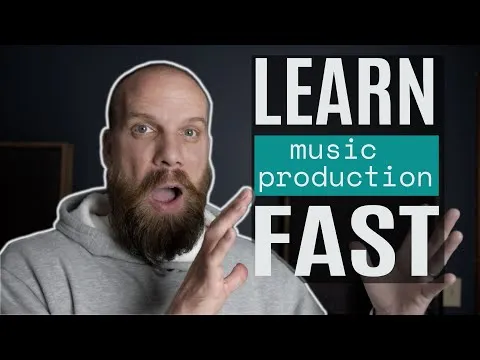
Ultimate Beginners Guide to Logic Pro 
This course is the ultimate beginners guide to Logic Pro. It covers the basics of navigating, recording, and editing notes, adjusting tempo, audio, loops and volume automation, and the basics of Logic's Synthesizers and effect plugins. It also includes an overview of third party plugins like East/West orchestra. Through 5 hours of video tutorials, you'll learn the most used hotkeys and functions to help you create music and save time. So sit back, open up your Logic session and take good notes! ▼
ADVERTISEMENT
Course Feature
![]() Cost:
Cost:
Free
![]() Provider:
Provider:
Udemy
![]() Certificate:
Certificate:
Paid Certification
![]() Language:
Language:
English
![]() Start Date:
Start Date:
On-Demand
Course Overview
❗The content presented here is sourced directly from Udemy platform. For comprehensive course details, including enrollment information, simply click on the 'Go to class' link on our website.
Updated in [May 25th, 2023]
This course, Ultimate Beginners Guide to Logic Pro, is designed to help those with no prior knowledge of the software to become fairly solid in their understanding of Logic Pro. Through five hours of video tutorials, learners will gain an understanding of how to navigate, record, and edit notes, adjust tempo, audio, loops and volume automation, and learn the basics of Logic's Synthesizers and effect plugins. The course will also cover third party plugins such as East/West orchestra. By the end of the course, learners will have a solid foundation of knowledge to build upon and create music with Logic Pro.
[Applications]
Those who have completed this course will have a solid understanding of the basics of Logic Pro. They will be able to navigate, record, and edit notes, adjust tempo, audio, loops and volume automation, and understand the basics of Logic's Synthesizers and effect plugins. They will also have a better understanding of the hotkeys and functions to help them create music, as well as an overview of the instruments and effects including a few third party plugins. With this knowledge, they can apply their skills to create their own music and soundscapes.
[Career Paths]
1. Music Producer: Music producers are responsible for overseeing the production of music recordings. They work with artists, songwriters, and engineers to create the best possible sound. They also manage budgets, schedules, and deadlines. As technology advances, music producers are increasingly using digital tools to create and mix music.
2. Audio Engineer: Audio engineers are responsible for recording, editing, and mixing audio for music, film, television, and other media. They use a variety of tools and techniques to create the desired sound. As technology advances, audio engineers are increasingly using digital tools to create and mix audio.
3. Music Composer: Music composers are responsible for creating original music for film, television, video games, and other media. They use a variety of tools and techniques to create the desired sound. As technology advances, music composers are increasingly using digital tools to create and mix music.
4. Sound Designer: Sound designers are responsible for creating sound effects and soundscapes for film, television, video games, and other media. They use a variety of tools and techniques to create the desired sound. As technology advances, sound designers are increasingly using digital tools to create and mix sound.
[Education Paths]
1. Bachelor of Music Technology: This degree path focuses on the technical aspects of music production, such as recording, mixing, and mastering. It also covers topics such as music theory, composition, and sound design. Developing trends in this field include the use of virtual instruments, digital audio workstations, and other digital music production tools.
2. Bachelor of Music Production: This degree path focuses on the creative aspects of music production, such as songwriting, arranging, and producing. It also covers topics such as music theory, composition, and sound design. Developing trends in this field include the use of virtual instruments, digital audio workstations, and other digital music production tools.
3. Bachelor of Audio Engineering: This degree path focuses on the technical aspects of audio engineering, such as recording, mixing, and mastering. It also covers topics such as acoustics, signal processing, and sound design. Developing trends in this field include the use of virtual instruments, digital audio workstations, and other digital audio engineering tools.
4. Bachelor of Music Business: This degree path focuses on the business aspects of the music industry, such as marketing, promotion, and distribution. It also covers topics such as music law, copyright, and music publishing. Developing trends in this field include the use of digital platforms, streaming services, and other digital music business tools.
Pros & Cons

Clear and useful

Learning a lot

Good overview

Clear and good understanding

Learn a lil more

Good so far.

Old version

Too much time spent

Not for Logic 10.6

Annoying.
Course Provider

Provider Udemy's Stats at AZClass
Discussion and Reviews
0.0 (Based on 0 reviews)
Explore Similar Online Courses

Create a CRUD API with Laravel and Postman

Learn Spoken Arabic in 101 Languages!

Python for Informatics: Exploring Information

Social Network Analysis

Introduction to Systematic Review and Meta-Analysis

The Analytics Edge

DCO042 - Python For Informatics

Causal Diagrams: Draw Your Assumptions Before Your Conclusions

Whole genome sequencing of bacterial genomes - tools and applications

online music production course good or bad

I Learn How to Produce Music in 12 DAYS!


Start your review of Ultimate Beginners Guide to Logic Pro